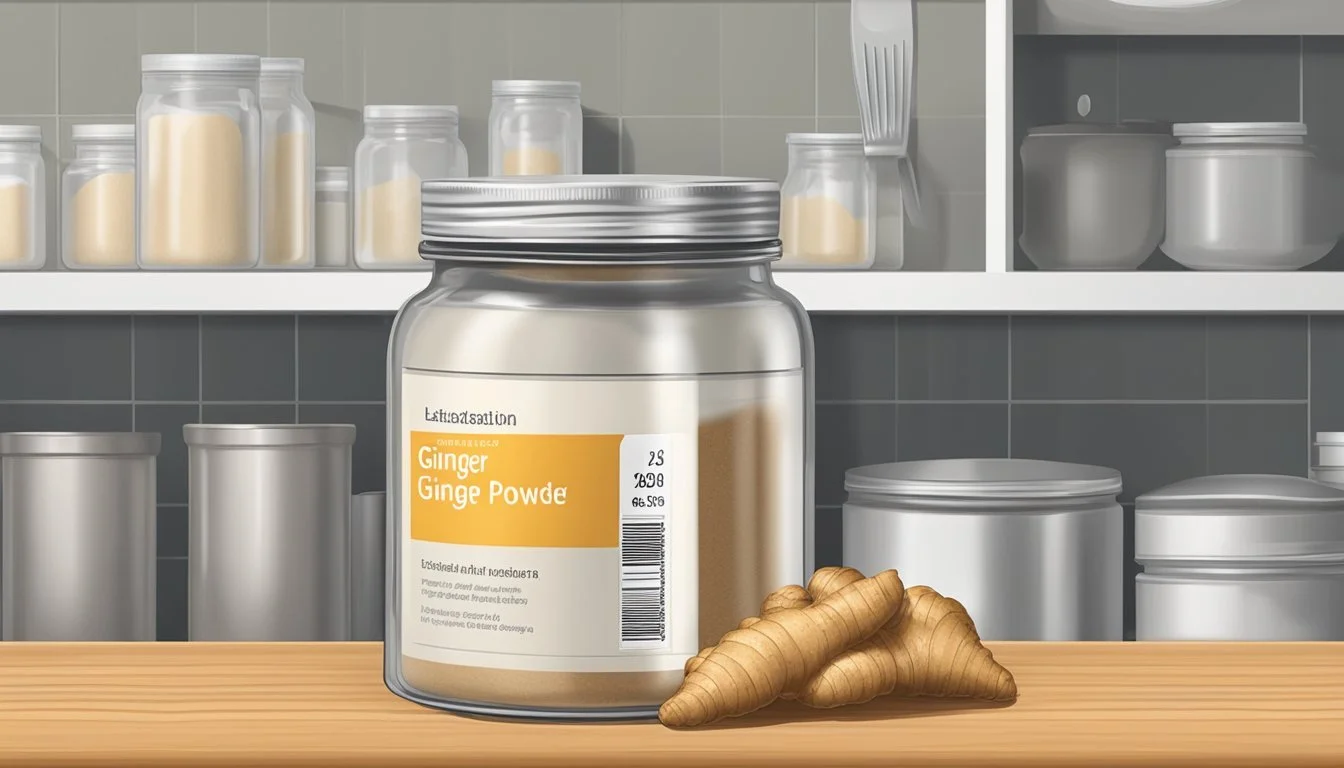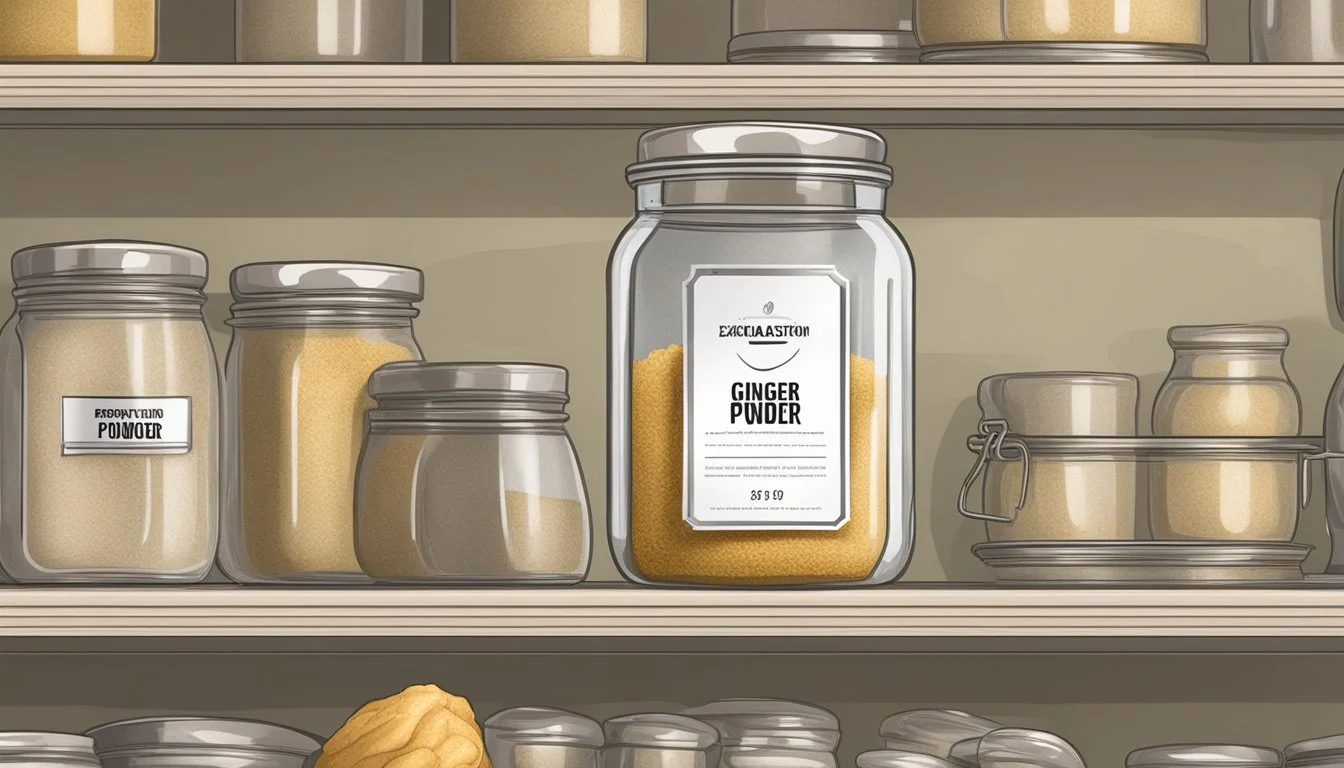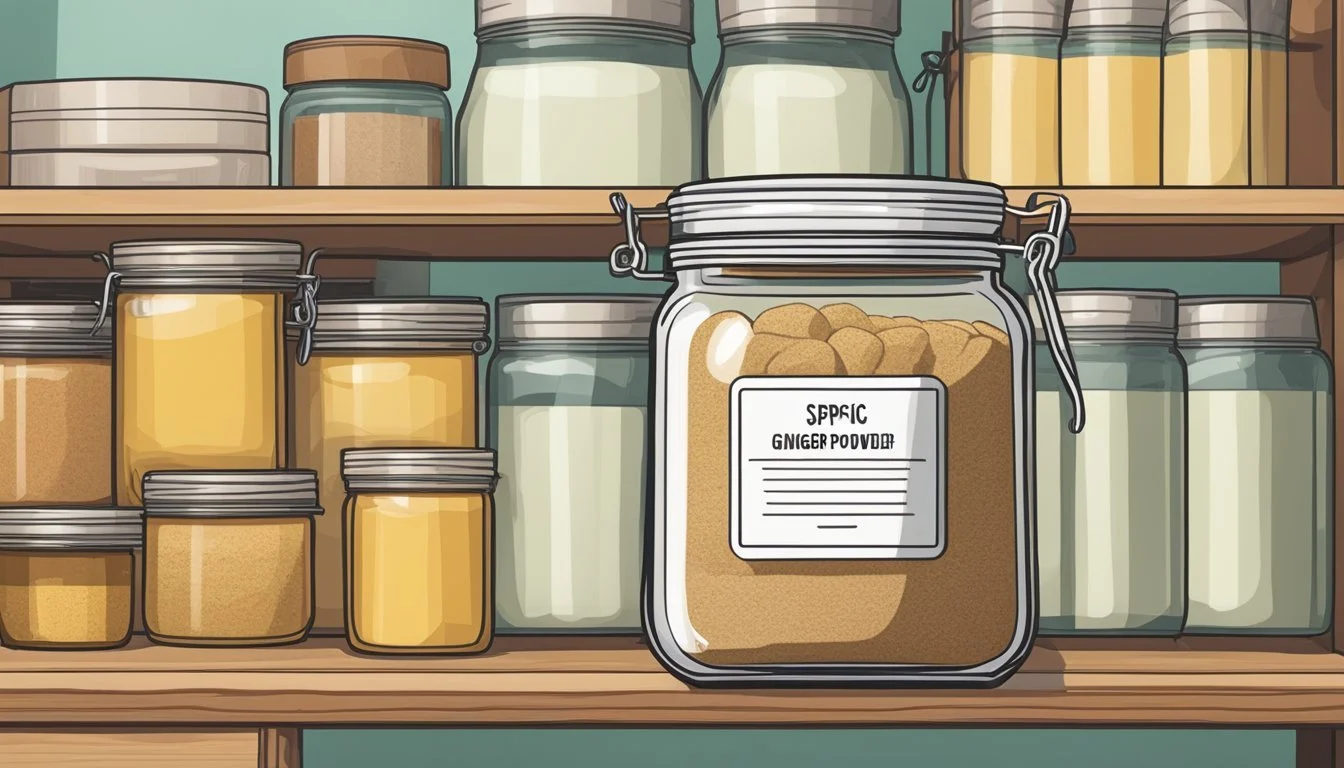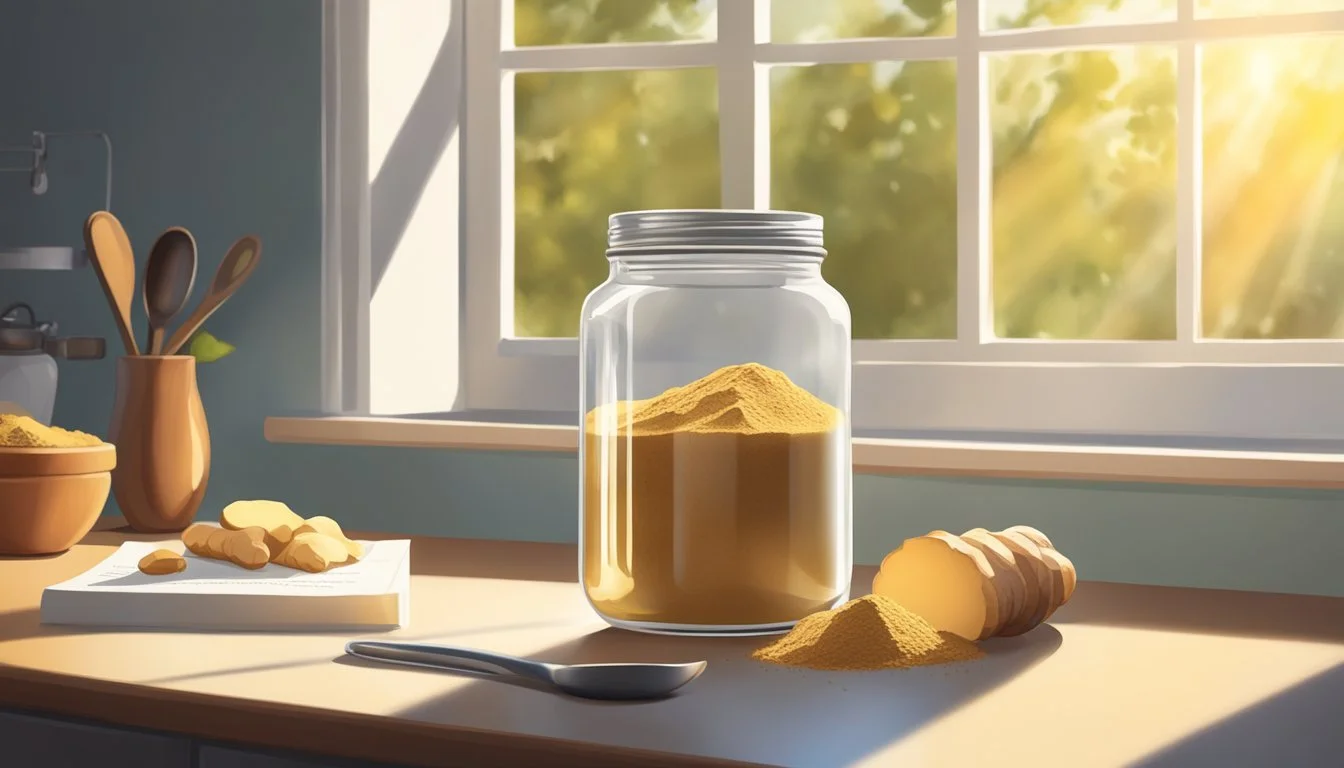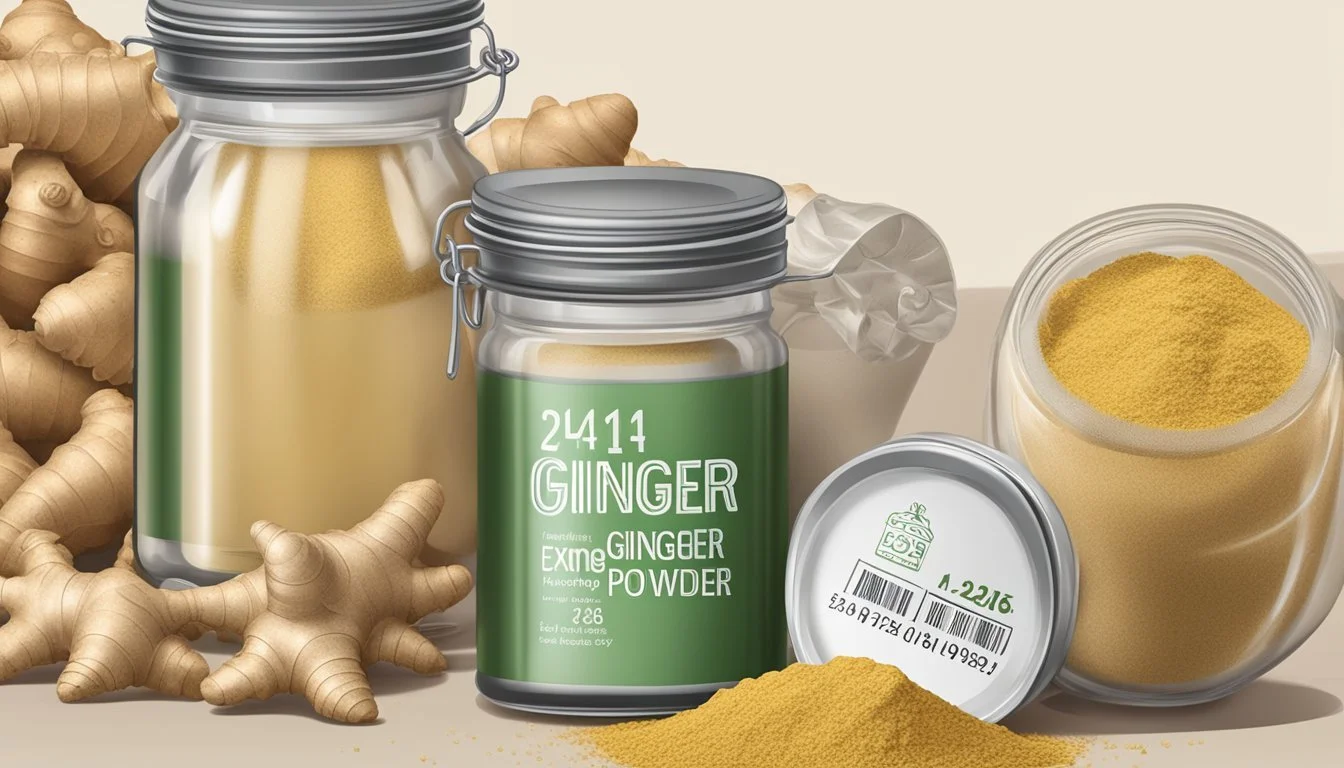How Long Does Ginger Powder Last?
Shelf Life and Storage Tips
Ginger, revered for its culinary and medicinal uses, is a spice that finds a place in various forms in kitchens worldwide. Amongst these forms, ginger powder is a convenient and versatile ingredient with a long shelf life. The longevity of ginger powder hinges on appropriate storage conditions, with a dry, cool, and dark environment being ideal. Generally, ginger powder can retain its quality and potency for up to two to three years when stored properly. Although it doesn't spoil in the traditional sense, over time it can lose its flavor and aroma, which are critical to its culinary contribution.
Understanding the shelf life of ginger powder is vital for both food safety and taste. Consumers rely on it to deliver a warm, spicy kick to dishes, and it serves as a staple in spice blends and seasoning mixes. With its concentrated form, even a small amount of ginger powder can have a significant impact on a dish's flavor profile. Hence, it's not just about the powder staying safe to consume, but also about ensuring it provides the expected flavor intensity.
Indicators of ginger powder losing its essence include a weakened aroma and a more subdued taste. It's important to note that while ginger powder may remain safe to consume beyond its peak flavor period, for the best culinary results, one should consider the recommended time frame for usage. The quality of ginger powder can be maintained by storing it in airtight containers away from heat and moisture, preventing any degradation of its vibrant characteristics.
Understanding Ginger Powder
This section explores ginger powder—a concentrated form of spice with distinct health benefits and a unique flavor profile critical for various culinary uses.
Defining Ginger Powder
Ginger powder is a finely ground spice derived from dried ginger root. It is commonly used as a convenient and shelf-stable alternative to fresh ginger. Ginger powder is easier to store and has a long shelf life, remaining potent typically for 2-3 years if it's unopened and stored in a cool, dry pantry. Once opened, it should be used within six months to a year, ensuring the container is tightly sealed after each use to maintain freshness.
Health Benefits of Ginger
Ginger is known for its numerous health benefits. It contains anti-inflammatory compounds, which may help reduce muscle pain and soreness. Ginger also has a long-standing reputation for alleviating symptoms of nausea and aiding digestion. Additionally, its bioactive compound, gingerol, has been studied for its protective effects against infections.
The Flavor Profile of Ginger Powder
The flavor of ginger powder is concentrated and characterized as warm, spicy, and slightly sweet. It adds a unique and pungent aroma to dishes. Different from its fresh counterpart, the powdered form is less sharp but equally vibrant, making it an excellent palate cleanser in spice blends and a flavor enhancer in both savory and sweet dishes.
Proper Storage Methods
Storing ginger powder properly is essential to maintain its potency and extend its shelf life. The following methods provide guidance to keep ginger powder at its best.
Storing Ginger Powder in the Pantry
The pantry is an ideal place to store ginger powder as it is typically cool, dark, and dry. Ginger powder should be kept in a tightly sealed container to prevent exposure to moisture and to maintain its freshness. A shelf life of two to three years can be expected when stored properly in the pantry.
Refrigerating Ginger Powder
Although not commonly recommended, if the pantry isn't available, storing ginger powder in the refrigerator can be an alternative. Ensure it's in an airtight container to prevent moisture and other contaminants. The storage temperature in the fridge can also help preserve the flavor and extend the shelf life.
Freezing Ginger Powder
Freezing ginger powder is not necessary and could introduce unwanted moisture. If this method is chosen, it must be stored in a freezer-safe, airtight container. Label the container with the date of storage to keep track of its lifespan.
Preventing Moisture and Contaminants
To preserve the quality of ginger powder, store it in a dry environment away from direct sunlight. Use an airtight container, such as a glass jar with a secure lid, to prevent the entry of moisture and contaminants that could compromise the powder's integrity.
Tips for Storing Fresh Ginger
When dealing with fresh ginger, it should be stored unpeeled in the crisper drawer of the refrigerator, wrapped in a paper towel to absorb excess moisture. For extended storage, fresh ginger can be frozen whole or minced in an ice cube tray. Frozen ginger can be grated as needed without thawing, extending its shelf life significantly.
Ginger Powder Lifespan
Ginger powder serves as a convenient spice with a considerably long shelf life while maintaining its potency. Understanding storage and signs of spoilage can extend its usability and flavor contribution to numerous dishes.
Shelf Life of Ginger Powder
Ginger powder typically has a shelf life ranging from 2 to 3 years. This duration is contingent upon the spice being stored in a suitable environment which maximizes its freshness and potency over time.
Factors Affecting Ginger Powder Potency
Factors that critically affect the potency of ginger powder include:
Storage: An airtight container is essential to prevent moisture from seeping in and diminishing the ginger’s quality.
Environment: A dark, cool place is optimal for retaining the ginger powder's inherent pungent taste and preventing degradation.
Moisture and Air Exposure: Minimizing exposure to air and moisture helps sustain the flavor and prevent caking.
Signs of Spoilage in Ginger Powder
One can recognize spoiled ginger powder through:
Mold and clumping due to moisture infiltration.
Color change; faded color often indicates loss of flavor.
Smell: A weaker aroma suggests diminishing potency.
Although ginger powder doesn't have a specific expiration date, these indicators can help determine if it has gone bad.
Creative Uses for Ginger Powder
Ginger powder is a versatile spice that can deeply enrich the flavor profile of many dishes and beverages. It provides a convenient way to infuse a warm, spicy kick into a variety of recipes, from sweet to savory.
Cooking with Ginger Powder
When cooking, ginger powder serves as an essential ingredient in the spice cabinet. It's a convenient alternative to fresh ginger, especially when a recipe calls for a more concentrated or drier form of the spice. Ginger powder is commonly used in:
Baking: Delivers a spicy sweetness to cakes, cookies, and pumpkin pie spice blends. Here's an example for ginger powder inclusion in baking:
Snickerdoodle Cookies: Replace cinnamon with ginger powder to create ginger snickerdoodles, adding a zesty twist to this classic treat.
Savory Dishes: Elevates the taste of marinades, dry rubs, and sauces for meats, and is a key ingredient in many ethnic cuisines, especially Asian dishes.
Making Beverages with Ginger Powder
Ginger powder is not only for solid foods; it's also fantastic for drinks. It dissolves well, making it an excellent spice for beverages:
Ginger Tea: A simple, soothing drink that can be made by mixing hot water with ginger powder, optionally sweetened with honey and enhanced with a squeeze of lemon juice.
Detox Drinks: Enhance wellness drinks with ginger powder for its potential health benefits like anti-inflammatory properties and digestion aid.
Use the following ratios for ginger tea:
Quantity of Water Ginger Powder Honey (optional) Lemon Juice (optional) 1 cup (240 mL) ¼ tsp 1 tsp 1 tbsp
They should steep ginger tea for several minutes and add other ingredients, such as lemon and honey, according to personal taste preference.
Maximizing Ginger Powder's Benefits
To fully benefit from ginger powder, one should consider its pairing with foods, its role in traditional remedies, and the importance of choosing high-quality powder.
Pairing with Foods for Enhanced Flavor
Ginger powder offers a warm, spicy kick that can complement and enhance a variety of dishes. Its aromatic flavor is best preserved when added towards the end of the cooking process to avoid overheating and losing potency. For savory applications, it pairs well with meats, vegetables, and sauces, offering a deep, earthy note. In sweet contexts, like in baking, it contributes a pleasant heat that can bring balance to sugary treats.
Examples of food pairings:
Meats: Chicken, lamb, or beef
Vegetables: Carrots, sweet potatoes, lentils
Sauces: Tomato based, soy-glaze, curry
Baked Goods: Gingerbread, cookies, pumpkin pie
The Role in Traditional Remedies
Traditionally, ginger powder has been used as a remedy for various ailments, its inclusion in diets is often tied to potential health benefits. Ginger contains compounds like gingerol that can aid in alleviating nausea, supporting digestive health, and contributing to the management of infections. In the context of cold and flu remedies, it is believed to help boost the immune system and can be consumed in tea or warm water.
Applications in traditional remedies for:
Nausea: Consumed in water or tea
Digestive health: Used in daily cooking
Infections: Added to soups or hot drinks
Tips for Buying Quality Ginger Powder
When purchasing ginger powder, freshness and color are indicators of its quality and potency. Look for fine powder with a vibrant, tan color, signifying it has been recently ground. Avoid dull or clumpy powders, as these may be stale and less flavorful. Store ginger in an airtight container, away from heat and light to maintain its spicy aroma and health benefits.
Checklist for buying ginger:
Color: Vibrant, tan and even
Aroma: Strong and pungent
Texture: Fine, free-flowing powder
Packaging: Sealed properly to retain freshness
Frequently Asked Questions
In this section, the reader will find specific methods to select, preserve, and store ginger powder and its preparations to ensure maximum shelf life and retain optimal flavor and freshness.
How to Select the Best Ginger Powder
When purchasing ginger powder, one should look for a fine, sandy texture with a consistently light tan color. The aroma should be potent and spicy, indicative of its freshness. Storing it in a cool, dry place away from sunlight will help maintain its quality.
How to Preserve Ginger Pastes and Preparations
To preserve ginger pastes and preparations:
Store in an airtight plastic container or glass jar.
Keep in the refrigerator to extend shelf life. Typically, ginger paste can last up to one month when refrigerated.
To prevent mold growth, ensure the lid is tightly sealed after each use.
Alternative Storage Techniques
For those looking to extend their ginger's shelf life beyond typical methods:
Store fresh ginger in the vegetable drawer of a refrigerator wrapped in a paper towel to absorb excess moisture.
Freezing ginger root is an option, allowing it to last up to six months. One may grate or slice it before freezing for easier use later.
Addressing Common Ginger Storage Problems
Common issues with ginger storage include dryness, loss of potency, and mold growth. To combat these problems:
Check the ginger regularly for any signs of spoilage, such as changes in texture or color.
Use an airtight container to minimize exposure to moisture, which can lead to mold growth.
For ginger powder, ensure it is kept in a dry location to prevent clumping and loss of aroma.
Conclusion
Ginger powder is renowned for its longevity, outlasting its fresh counterpart when properly stored. The shelf life of ginger powder generally extends to about two to three years. It is imperative to store it in a dry, cool place away from direct sunlight to preserve its potency, aroma, and flavor.
To ascertain the quality of ginger powder, one can look for changes in its characteristics. A dull color, muted aroma, and less pronounced flavor can indicate a decrease in quality. Although ginger powder may not spoil in the traditional sense, these sensory changes suggest it is past its prime for culinary use.
Storage Tips for Ginger Powder:
Airtight container: This preserves freshness and prevents moisture contact.
Cool, dark space: A pantry or cupboard is preferable to avoid heat and light degradation.
Dry environment: To ward off clumping and mold growth.
Regarding health benefits, while ginger powder maintains numerous benefits of fresh ginger, its efficacy might diminish over time, correlating with the decrease in its aromatic and flavorful qualities. Adhering to the proper storage guidelines ensures that one can make the most out of ginger powder's attributes.
To conclude, consumers and culinary professionals alike should monitor their ginger powder for signs of aging and replace it to ensure the highest quality for cooking and health purposes.

